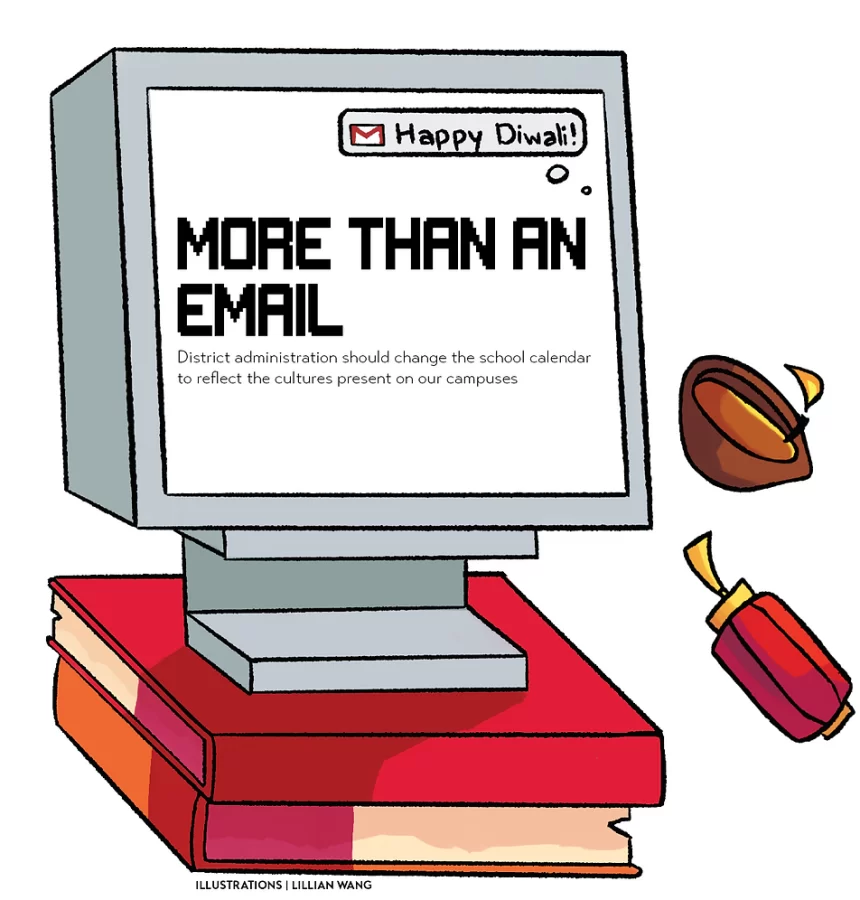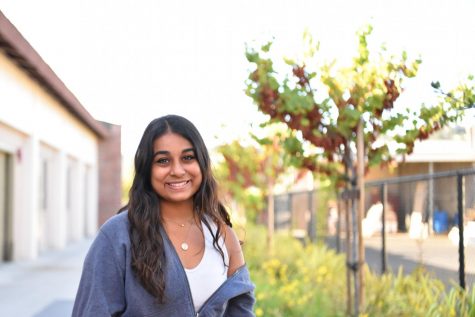More than an email
District administration and the teachers union should change the school calendar to reflect the cultures present on our campuses
April 3, 2022
School holidays are indubitably some of the most anticipated parts of the school year. Whether it’s a three-day weekend or two weeks, breaks from school serve as a brief intermission from schoolwork, and provide the opportunity for students to spend more time with their family and friends — time that is especially appreciated during religious holidays.
Of course, we all know and love Christmas time — or at least the two-week break that accompanies it.
But Christmas is only one of the many important holidays celebrated by our student body, with other examples that are given days off being Thanksgiving or Labor Day. Yet, despite the myriad of holidays that are celebrated throughout our campus, a select few are given more attention than others.
MVHS is a diverse campus, with students coming from a variety of different cultural, ethnic and religious backgrounds. Along with this diversity come different festivities, such as Diwali, Ramadan, Eid al-Fitr and Eid al-Adha and Lunar New Year. However, these holidays are not reflected by our Christian holiday-based school calendar, and are instead merely recognized by an annual email, simply wishing us a holiday that brings happiness and joy to us and our families.
How are we supposed to appropriately celebrate these holidays that mean as much to us as Christmas does to others? Though we are given time off from school to decorate the Christmas tree, put up stockings on the fireplace and hang up colorful lights, seniors of the MVHS Dance Team, Cheerleading team, Football team and Marching Band this year who celebrate Diwali will have to attend their Senior Night event instead of being at home and helping their family decorate the house with colorful “rangolis” and tiny candles to observe the festivity. While we are given the time to have a stress-free Christmas dinner with our families with lots of food, family and fun, those celebrating Eid al-Fitr aren’t able to fully enjoy the traditional elaborate feast as they have homework due the next day.
Having to manage school on these valuable holidays creates a barrier between students and the festivities that are important to them, which is why our school calendar should work to be more inclusive of various religious events. Adopting holidays that most of our student body celebrates into our calendar is conducive towards creating a community in which all students feel appreciated and seen, and would help our campus become more aware of the events being celebrated in our own community as well as around the world.
This idea isn’t new — incorporating non-Christian religious events into public school calendars is something cities around the country have already been doing for years. In 2015, public school districts in New York City became one of the first to close their schools in observance on the days of two major Muslim holidays, Eid al-Fitr and Eid al-Adha. Students and parents were delighted that their community was recognizing the importance of their religious events, and felt that it was a large step forward towards being more inclusive of other religions besides Christianity.
Students should not have to choose between celebrating holidays with their families and fearing being absent from school and falling behind on schoolwork. Changes in the school calendar that recognize these holidays by marking them as days off would greatly benefit our community, because it would ensure that all members of our student body feel that their religious beliefs are included in what our school deems as important holidays. Acknowledging non-Christian holidays with more than just an email would make sure to represent the people of our campus more accurately, and would be a step in the right direction towards embracing all religions and cultures.




























